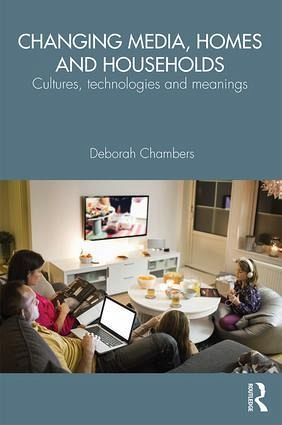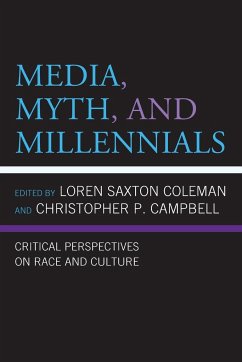
Changing Media, Homes and Households
Cultures, Technologies and Meanings
Versandkostenfrei!
Versandfertig in 1-2 Wochen
51,99 €
inkl. MwSt.
Weitere Ausgaben:

PAYBACK Punkte
26 °P sammeln!
Media technologies have played a central role in shaping ideas about home life over the last two centuries. Changing Media, Homes and Households explores the complex relationship between home, householders, families and media technologies by charting the evolution of the media-rich home, from the early twentieth century to the present. Moving beyond a narrow focus on media texts, production and audiences, Deborah Chambers investigates the physical presence of media objects in the home and their symbolic importance for home life. The book identifies the role of home-based media in altering rela...
Media technologies have played a central role in shaping ideas about home life over the last two centuries. Changing Media, Homes and Households explores the complex relationship between home, householders, families and media technologies by charting the evolution of the media-rich home, from the early twentieth century to the present. Moving beyond a narrow focus on media texts, production and audiences, Deborah Chambers investigates the physical presence of media objects in the home and their symbolic importance for home life. The book identifies the role of home-based media in altering relationships between home, leisure, work and the outside world in the context of entertainment, communication and work. It assesses whether domestic media are transforming or reinforcing traditional identities and relations of gender, generation, class and migrancy. Mediatisation theory is employed to assess the domestication of media and media saturation of home life in the context of wider global changes. The author also develops the concept of media imaginaries to explain the role of public discourses in shaping changing meanings, values and uses of domestic media. Framed within these approaches, four chapters also provide in-depth case studies of the processes involved in media's home adoption: early television design, family-centred video gaming, the domestication of tablet computers, and the shift from "smart homes" to today's "connected" homes. This is an ideal text for students and researchers interested in media and cultural studies, communication, and sociology.














